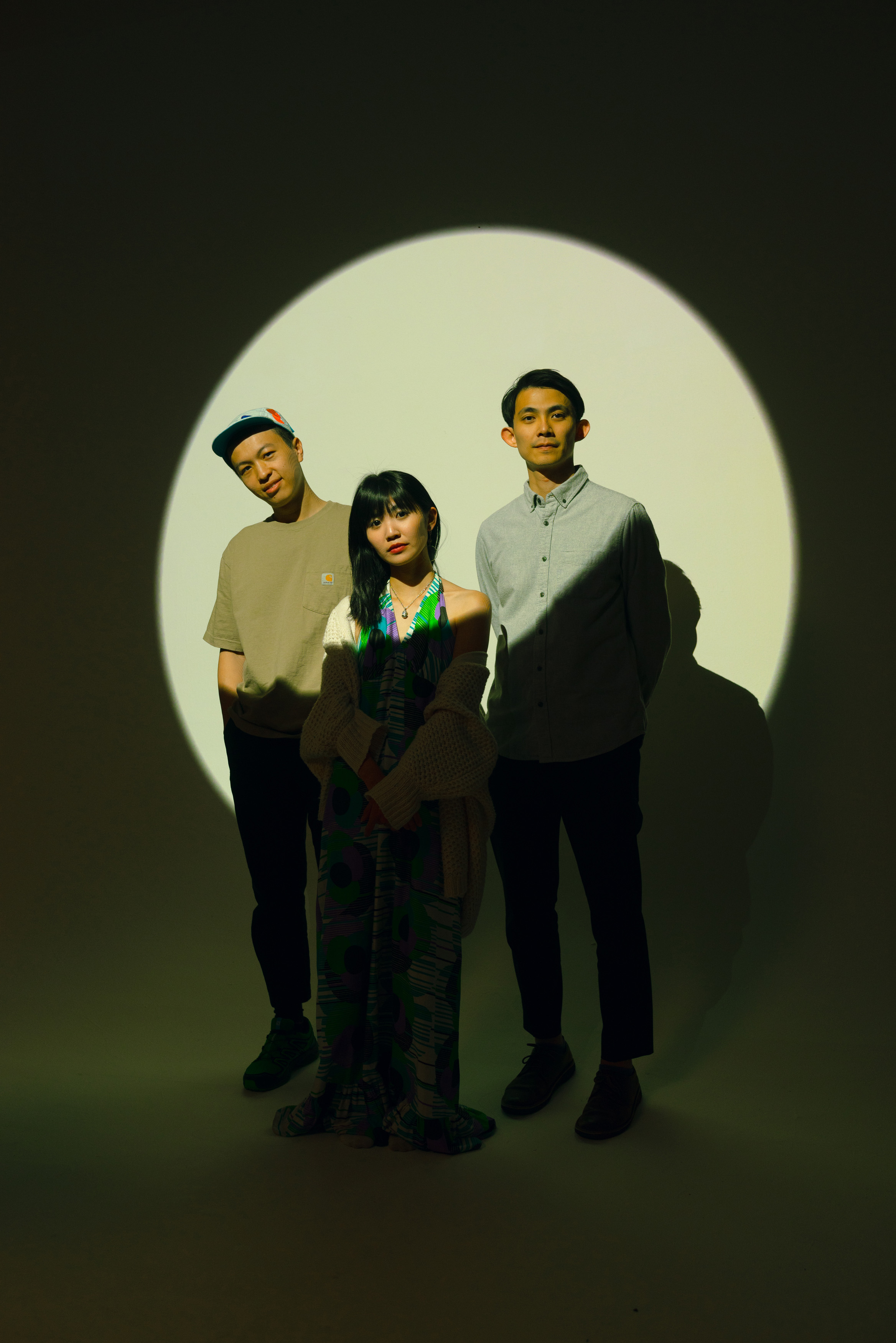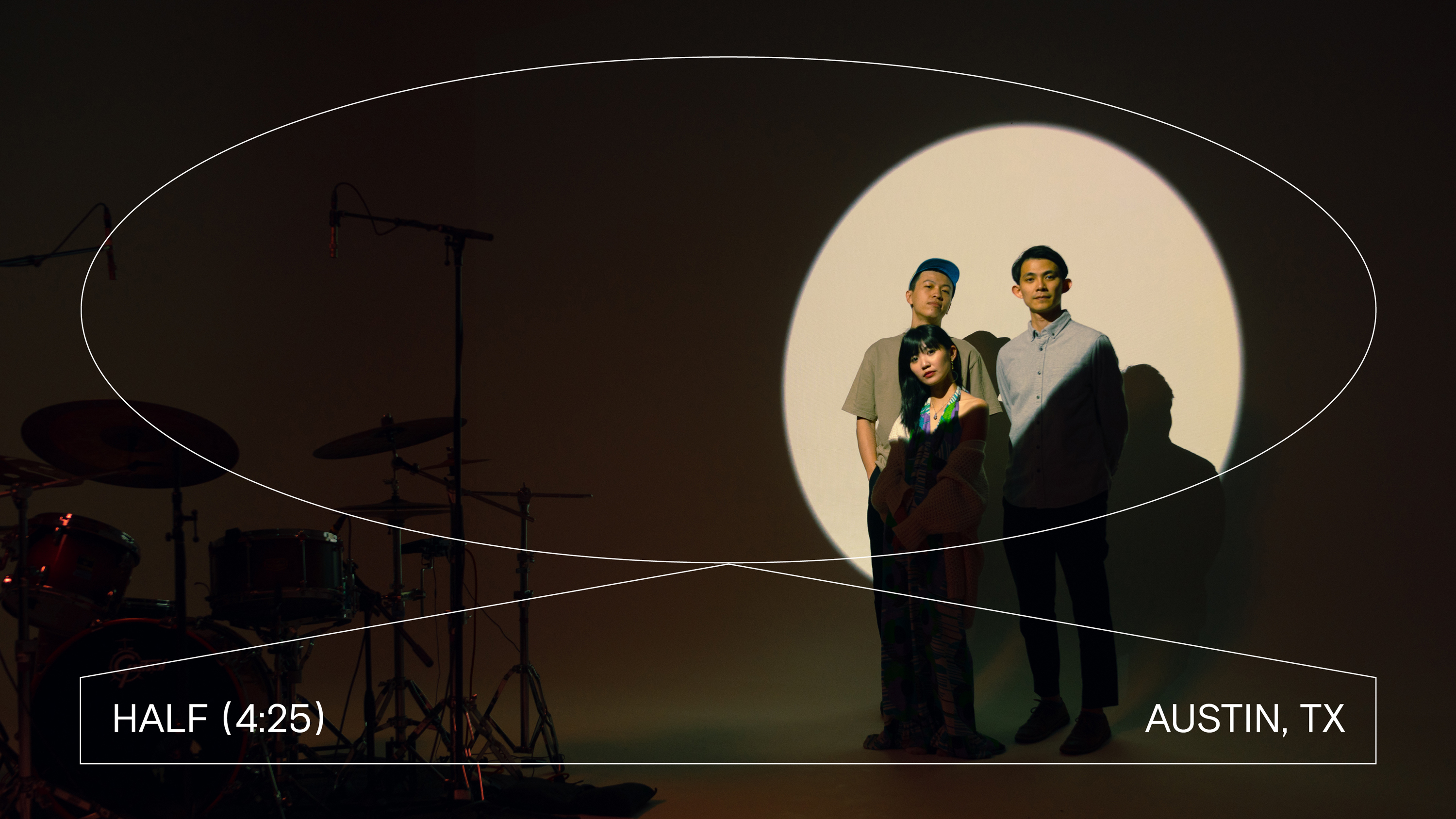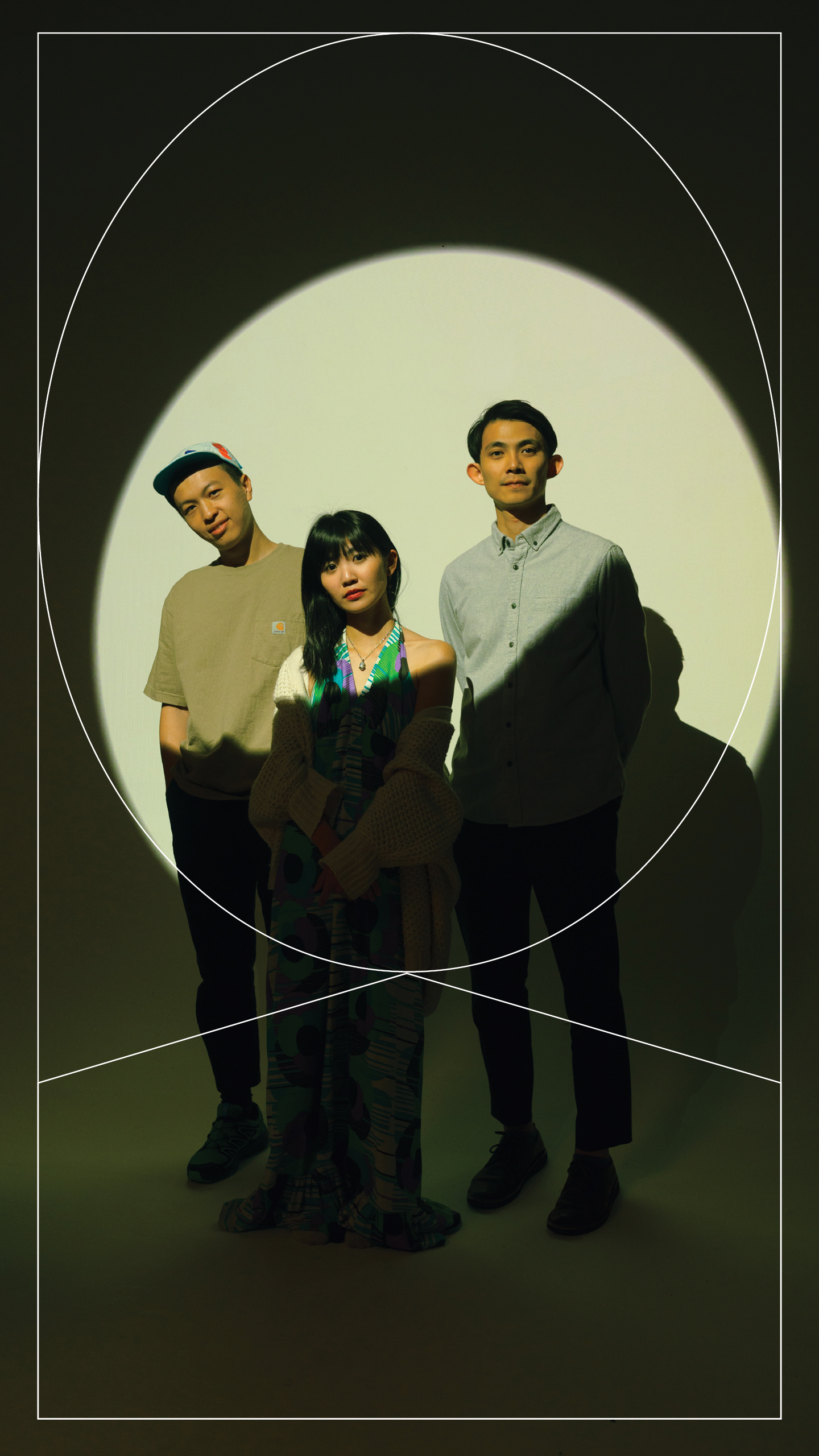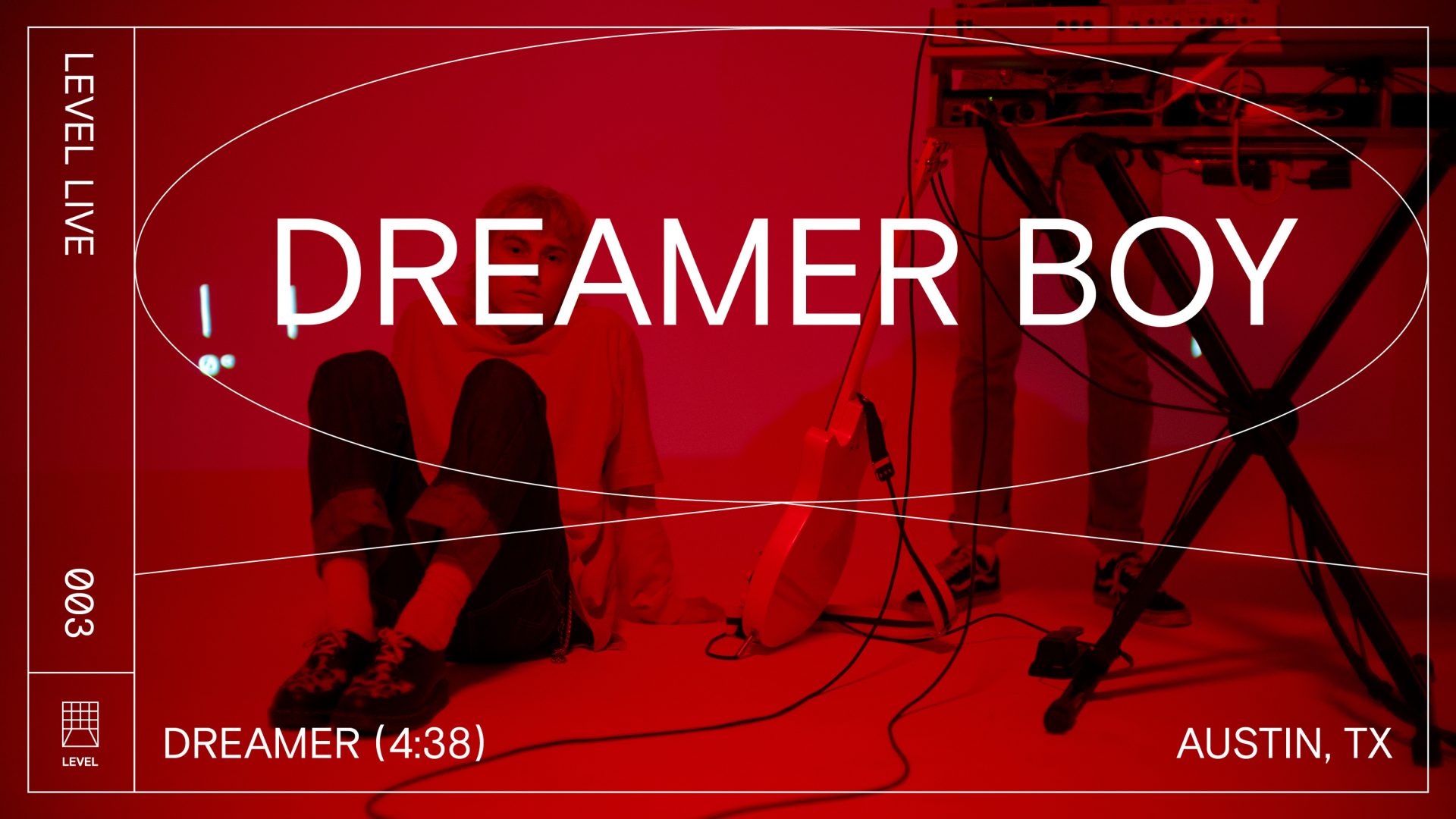A heavy warble. A cymbal crash. The bass kicks in.
All breaks loose.
Until a piano interlude interrupts, bringing you back to equilibrium.
Only to be thrown back into a cacophony of noise, intensifying, feeding off its own frenetic energy.
It’s dizzying. The room spins out of control — any attempt to reorient yourself is futile.
This is math rock, exemplified by Taiwanese trio — Elephant Gym (大象體操).
To try to simplify math rock would be a disservice to the elaborate genre. But to put it in broad terms, math rock is a niche style of indie rock, influenced by post rock and progressive rock. First appearing in the U.S. in the 1980s, math rock is built on unique rhythmic structures and time signatures.
Its main distinction can be described as organized chaos. First-time listeners may be taken aback by its atypical and largely unpredictable course, which includes dissonant chords, hard stops, and general irregularity.
But that’s precisely what’s so appealing about math rock. The only constant is that it’s not; it’s a confident, experimental upset of the rules that we hold to be absolute. But to break the rules, one has to know them first.
As Elephant Gym recalls where they were first introduced to the fundamentals, it becomes clear that their musical fate seems somewhat predestined. Like many artists, KT Chang (bass) and older brother Tell Chang (guitar, keyboard) can attribute their musicality to their childhood and mother who teaches music.
KT fondly reminisces on learning the flute, which “every elementary school kid in Taiwan learned in school.” Only in hindsight does she realize how their lessons and classical training would be so predictive of the future.
“I learned the bass flute and Tell learned flutes with higher octaves. In a way, our band roles were set way back when we were younger. We learned mostly duets or trio pieces from Baroque periods, which are actually somewhat similar to math rock. The rhythm for that type of music is pretty challenging, strict, and intertwined. So that had a big influence on us.”

Left: Chia-Chin (drums), Center: KT (bass), Right: Tell (keys, guitar)
Chia-Chin Tu (drums) also recalls learning percussions early on, much to his own chagrin.
“I hated practicing when I was a kid. I would run and hide in the bathroom whenever practice started. When it came time to perform, I couldn’t really get things right since I didn’t put in the work.”
Of course, he has since had a change of heart, which he credits to his band members.
“I’m really thankful to KT and Tell for helping me realize my love for music, which helped me get over my dislike for practicing. I’m really grateful and touched by that.”
He’s not alone in the sentiment. He first met the siblings at a music club in high school, where they bonded over their love of math rock and the like. They formed Elephant Gym — the “elephant” refers to the integral role that the bass guitar plays and “gym(nastics)” as a metaphor for their rhythm. The band members rely heavily on one another, preferring that each play at their strengths in order to create harmoniously.
“We’re lucky in that we each really specialize in one thing and can complement each other really well,” explains Tell. “KT is really great at [bass] tapping. Chia-Chin is really good at manipulating rhythms. I’m good at riffs, melody, and chords. What I think is rare is that we’re good at knowing each other’s special powers and can help each other shine during performance. I think this is one of the things that makes Elephant Gym special. The three of us coexist using our instruments.”


This heightened interplay is pivotal in their group dynamics and in creating music, especially in a genre that’s largely built on a rehearsed improvisation. In fact, not unlike an improv troupe, Elephant Gym owes much of their success to their ability to say “yes and —.”
Breaking down their last album “Underwater,” Tell explains their creative process, emphasizing how important it is to know when to lead, follow, and at all times remain receptive. Each of the members led production for at least three to four tracks on the album.
“I think this gave me a whole new way to experience making music. […] before this album, we didn’t really put drums front and center. But after putting in the effort with a four minute drum demo by Chia-Chin, we found a lot of really interesting things that he had laid down. After the album came out, fans shared with us two of their favorite songs, which happened to be the two that Chia-Chin produced.”
Tell continues to gush, “I’m super happy to see different creative styles from each other and that I’m able to pair up to whatever style that is.”




As far as math rock itself, Elephant Gym is one of Taiwan’s very few.
“We didn’t tour much outside of Taiwan three years ago,” KT explains. “We didn’t feel quite as confident in our choice of the genre since there weren’t a lot of locals listening to math rock back then.” But as their fanbase grows in the East, the band has been pleasantly proven wrong with a warm welcome overseas.
She likens touring as “the most direct way for [them] to experience people’s energy.”
“When we’re in the studio, we don’t get the same type of physical energy as we can at shows. In our recent U.S. stops, we were amazed that people were seriously moshing to our music. We’ve never experienced that before in Taiwan. That kind of energy can easily feed from the crowd back onto the stage. It’s physical and raw, which helps us give the crowd even more. That’s when we feel most connected via music.”
Elephant Gym’s ability to transcend presumed ambiguity is proof that no matter how obscure you think your music is, you can find an audience for it. Something that the band has taken to heart. When asked what advice they had for their younger selves, KT quips, “To just not worry and trust that there will always be some weirdos liking our music! They might be all over different corners in the world. We just need to find them.”
Read on for a Q&A and listen to the live-recorded single of “Half” — out now via Level.

How do you think music connects people?
Chia-Chin: It’s about our love for music. Without worrying too much about the lyrics, math rock allows us to not have any reservations and to give it all to instruments.
Tell: We do have moments during our show when we intentionally put the focus on one person. For example, we would pause everything but the drums which help to fixate people’s attention onto the drummer for a solo and then all go back in all at once. When those moments end up working, that’s when we really see these raw emotions from the crowd.
Math rock is a highly technical genre. Can you tell us about your creative process?
KT: Because Tell and I are siblings, we grew up listening to and playing similar sounds. Andhat shows in what comes out of our creative output for Elephant Gym. Our bass isn’t paired to the drums as much as it’s paired to the guitar. Some of that stems from our childhood when we would learn to play flutes or piano in the same room when we were young. Chia Chin also doesn’t make any requirements for us to play to his drums either. So that’s also why we have some unique qualities and moments in our music that’s not too commonly found elsewhere.
Chia-Chin: Our audience would tell us what makes us a bit different from other math rock groups is that we mix in other genres. Some would find jazz and some would find R&B in our music. I think that’s because our personal taste in music is pretty diverse. We’re not always only just listening to math rock. We try to infuse our personal taste into our music and people seem to really enjoy that about us.
What do you want people to take away from your music?
Chia-Chin: The first thing that comes to mind is to create the same feeling that I get when I’m moved as an audience in the crowd.
KT: Since we make mostly instrumental and math rock, people may guess that our sound is calculated, serious or precisional. But I hope that people will feel that our music is easy on the ears and melodic. Rather than appreciating the technical side, I hope people appreciate the melody and allow themselves to react and hum along. Often, people are used to singing to vocals but at our shows, we saw people humming to Tell’s catchier guitar segments. We really aim to, in the realm of math rock, make music that people can easily latch onto.
Tell: I’ve met some fans that came to back-to-back our shows. They told me that before us, they never really knew where Taiwan was. After discovering us, he went home to Google where we’re from. I find that really interesting for people to get to know where our home is through our music.
What is success to you?
Tell: I think that’s hard to define. Artists often don’t share the same values for success compared to businesses and vice versa. To me, success doesn’t really need to be defined. It’s more about a journey and a point in that journey. Once you get to one point, another road opens up. For example, you’ll want to play at bigger and bigger venues. With that said, success is about being on this road with dedication and allowing yourself to feel, and learn through being on it.
Chia-Chin: To me, success can also mean being content, being happy and being free.
KT: For me as a musician, if you’re not making your family worry, that’s a form of success. Because it’s actually pretty hard to achieve, in the sense of keeping your family in the know of where you are and how you’re doing. For us as an example, we’re the only kids in our family and have to convince our parents that our choice in music isn’t as chaotic or terrible as they hear it to be. It’s something we really want to do with passion. Our parents actually got involved and helped with our album release. That alone makes us feel a sense of success, to allow our parents to have a peace of mind.
What advice do you have for yourself from three years ago?
Chia-Chin: Three years ago, I compared myself to others more which led to some unhappiness. So do that less and focus on yourself.
Tell: Three years ago, we went through [mandatory] military service and did worry if we could do music as a full-time job. I want to tell my younger self that you might be broke now but you’ll slowly get “promoted!”
Making music involves a lot of emotional input, and sharing it takes a lot of courage. What motivates you to create and share music?
Chia-Chin: Every time I’m asked this, I’m never able to really pinpoint it. I just know that I really love music.
Tell: When we were making our album [Underwater], each of us took on a producer role for different songs. We were trying to figure out what style of song made us all feel confident and what styles did we not want to touch. Each of us had to become a leader and we followed the steps of that leader. KT and I can probably guess what we like from each other, but before this album, we didn’t really put drums front and center in the creative process. So this time, when we followed suit from drummer and received a four minute long demo of just drums, we didn’t quite know what to do. But after really giving it an effort to work with that demo, we found a lot of really interesting things that Chia Chin had laid down. After the album is out, fans came to us to tell us that two of their favorite songs, which happened to be the two that Chia Chin produced.
KT: Yes, often the case is if someone likes a set of songs from the album, those songs are probably produced by the same person. That’s super cool to us.
Chia-Chin: The truth is that I don’t really know how to play melodic instruments. The end result for the two songs that I produced is really fantastic. They both did amazingly for each song.
KT: Creating can be a very personal and selfish thing. I believe it’s good to remind ourselves that creating music is for our audience and fans. Though the motivation comes from satisfying your own desire to create something. When I made songs that I didn’t really, we didn’t end up playing it too often. You should make stuff that you’d enjoy yourself.
What advice do you have for other artists who wish to break into foreign countries?
Tell: Know your sound. For example, there are a lot of fantastic songwriters in Taiwan, but for them to cross over to other countries, it’d be really challenging. Those writers may do well in Chinese music, and that’s great. For math rock, we pay attention to labels who already have a lot of math rock followers. That’s a pretty quick way to find your fanbase abroad.
KT: Have the courage to interact with fans from other countries. When we first formed, we somehow had the courage to contact one of our favorite math rock groups, Toe, to help us mix and master. A lot of people asked us how we made that happen. The truth is that we only sent them an email. Sometimes it’s really simple. If they’re interested in what you do, they’ll react well to what you do. Of course, things don’t always pan out. But if you succeed twice out of ten times when you take a leap, then that sets a good record and helps you progress internationally.
Chia-Chin: If you’re really unique in what you do, chances are that people will be receptive to that, whether it’s because of your culture or your identity. So it’s important to keep a proactive and friendly state of mind.
This interview has been edited and condensed for clarity.





